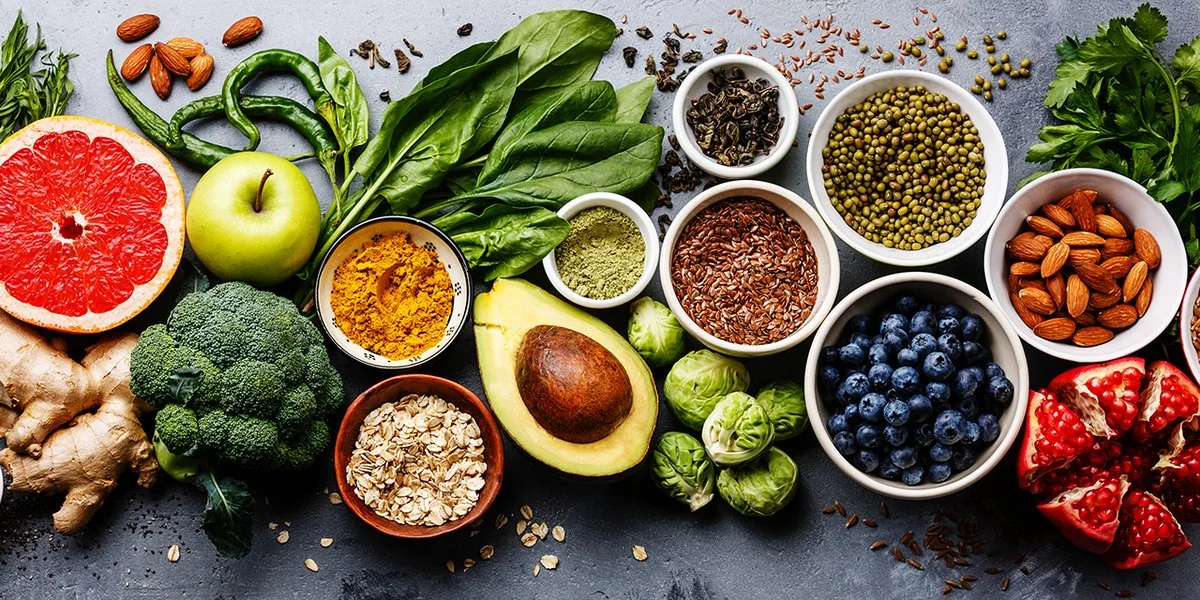
The Power of Gut-Healthy Foods for Better Digestion
Find the best foods to support digestion, boost gut bacteria, and improve overall wellness as you age.
Eating the right foods can make a big difference in how you feel, from the inside out. Your gut does more than just digest food; it affects your entire body. Gut-healthy food can boost your immune system and help you feel your best.
Around 15 percent of the U.S. population has Irritable Bowel Syndrome (IBS), according to the American Medical Association.* This condition affects women twice as often as men and usually starts before the age of 40. IBS causes hypersensitivity to the nerves around your gastrointestinal tract.
Symptoms of IBS can include:
- Diarrhea
- Constipation
- Abdominal Discomfort
- Frequent Bloating
- Gas
- Urgency
- Migraine Headaches
- Sleep Disturbances
- Anxiety
- Low Energy
- Chronic Pelvic Pain
- Trouble Digesting Certain Foods
Eating gut-healthy food can help prevent these symptoms. If you are experiencing ongoing stomach issues, it is important to talk to your doctor.
Eight Gut-Healthy Foods
Here are eight of the best foods that can also help with digestion, reduce inflammation, and promote healthy gut bacteria.
- Yogurt:
- Yogurt is not only delicious, but it’s also a good source of probiotics. It helps balance your gut flora and boost immunity. There are a lot of yogurts to choose from when you’re shopping at the grocery store. It’s important to pick one with no or low sugar and the “live and active cultures (LAC)” seal on the label. It’s the live bacteria that support digestion.
- High-Fiber Foods:
- Foods that are high in fiber help you feel fuller longer and are rich in prebiotics. Prebiotics are typically fibrous foods that nourish beneficial gut microorganisms, improving the balance of these microbes. Consuming high-fiber foods can help prevent constipation and help you have regular digestion.
- Some great high-fiber foods are:
- Oatmeal
- Apples
- Bananas
- Asparagus
- Artichokes
- Soybeans
- Onions
- Garlic
- Some great high-fiber foods are:
- Foods that are high in fiber help you feel fuller longer and are rich in prebiotics. Prebiotics are typically fibrous foods that nourish beneficial gut microorganisms, improving the balance of these microbes. Consuming high-fiber foods can help prevent constipation and help you have regular digestion.
- Fermented Foods:
- Studies have shown that naturally fermented foods may help strengthen your gut health. Foods such as sauerkraut, kimchi, miso, and pickles add good bacteria to your gut. Fermented foods that contain probiotics support digestion and reduce inflammation. Look for the words “naturally fermented” on the label to ensure it contains probiotics.
- Leafy Greens and Vegetables:
- Eating dark leafy greens and vegetables is great for keeping your gut healthy and supporting regular digestion. They provide fiber and protein that keep you full throughout the day. They can also reduce bloating and support your immune system.
- Here are some of the best for your gut health:
- Spinach
- Kale
- Swiss Chard
- Collard Greens
- Mustard Greens
- Arugula
- Dark Green Leaf Lettuce
- Brussel Sprouts
- Broccoli
- Here are some of the best for your gut health:
- Eating dark leafy greens and vegetables is great for keeping your gut healthy and supporting regular digestion. They provide fiber and protein that keep you full throughout the day. They can also reduce bloating and support your immune system.
- Whole Grains:
- Whole Grains like brown rice, quinoa, and whole wheat bread are rich in fiber and good for your gut health. However, not all grains are created equal. When shopping, you want to avoid packages with the words “multigrain” or “enriched” on them. Instead, look for products that say “100% whole grain” or “unprocessed grains,” which retain the original layers of bran, germ, and endosperm. It’s these layers that have the vitamins, minerals, and fiber your body needs. As part of a healthy diet, you should limit the amount of carbohydrates you consume in a day. So, make sure when eating food higher in carbohydrates, you choose the ones that give your body the necessary fuel it needs.
- Healthy Fats:
- Some high-fat foods can be beneficial for a healthy diet and can support gut health. Sometimes called “good fats,” foods like walnuts, flax seeds, chia seeds, olive oil, and avocados can help reduce gut inflammation. Healthy fats help your body absorb nutrients more efficiently. Read our blog about the 8 Types of Cooking Oils and When to Use Them.
- Bone Broth:
- Organic chicken or beef bone broths are rich in collagen and amino acids, which support the health of the gut lining. It’s easy to digest and may help reduce inflammation and bloating. In fact, a study has shown that the anti-inflammatory properties in bone broth may help reduce gut damage due to ulcerative colitis.†
- Herbal Teas:
- Drinking herbal teas can help with bloating, gas, and stomach discomfort. They can soothe digestion and also help with nausea and indigestion.
- Here are four herbal teas that may improve digestion:
- Ginger
- Peppermint
- Chamomile
- Black
- Here are four herbal teas that may improve digestion:
- Drinking herbal teas can help with bloating, gas, and stomach discomfort. They can soothe digestion and also help with nausea and indigestion.
Small Changes
Eating for your gut doesn’t mean changing everything overnight. Start by adding one or two gut-friendly foods to your meals each day. You’ll be surprised at the positive difference it can make
-
Looking for more lifestyle tips? Explore our latest blogs for practical tips to make healthier choices and get the most from your Medicare benefits.
Don’t forget to follow us on Facebook for updates and additional resources!
Sources:
*American Medical Association
Y0129_25EX006U_C


